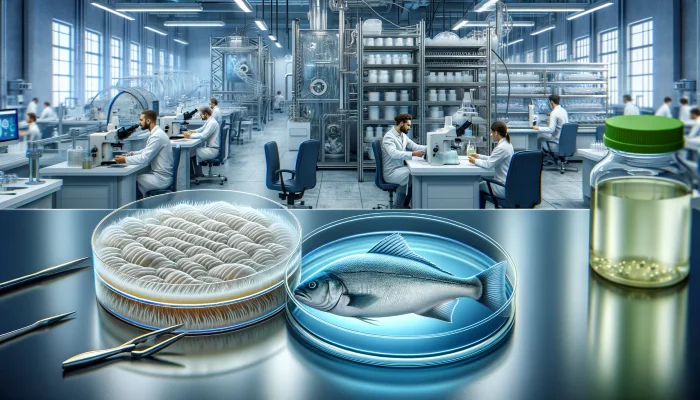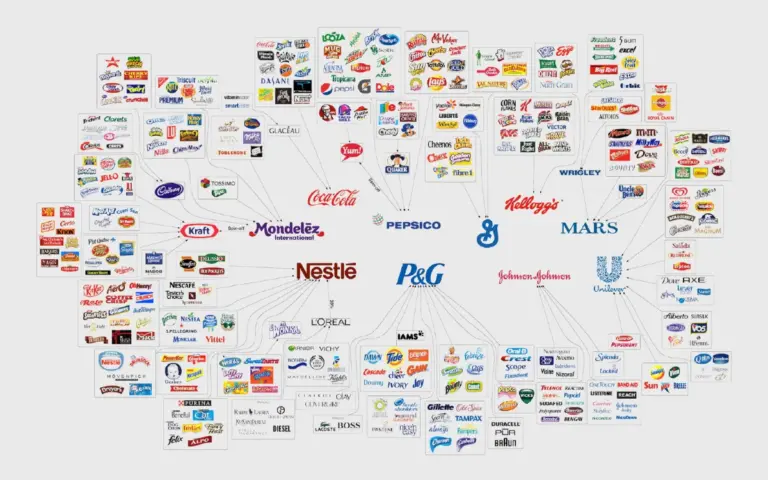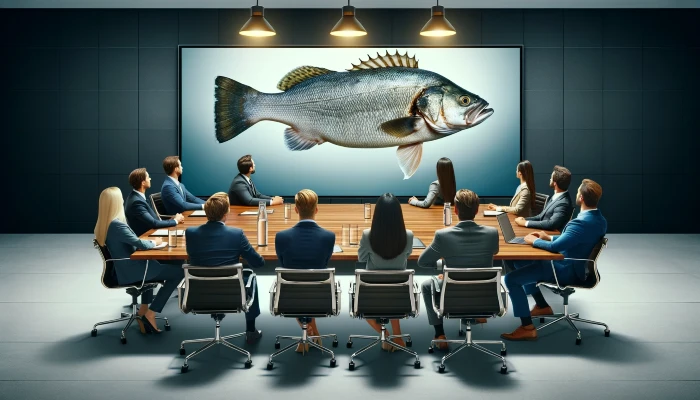Imagine a future where your favorite seafood dish comes not from the vast, mysterious depths of the ocean but from a state-of-the-art laboratory. Welcome to the forefront of the cultivated meat industry, where the future of our oceans and dinner plates intertwine in a scientific marvel.
The Dawn of a New Era in Seafood Production
In the heart of this revolution is Atlantic Fish Co., a pioneering venture embarking on a journey to transform how we consume seafood. As they delve into the early stages of production, their goal is simple yet ambitious: to create succulent, flaky white fish fillets straight from animal cells. This isn’t your average plant-based alternative. As Doug Grant, co-founder and CEO, passionately states, “This is not a plant-based replica. It’s just real meat or seafood, made in a totally different way.”
A Leap Towards Ethical and Sustainable Consumption
The motivation driving Atlantic Fish Co. is clear and urgent. With climate change increasingly threatening ocean ecosystems, the quest for sustainable seafood has never been more critical.
“It’s much more ethical and has a much lower carbon footprint, while still providing folks with that real authentic seafood that they know and love,” Grant explains. This revolutionary approach to seafood production promises to alleviate the growing environmental burdens of traditional fishing practices.

The Science Behind the Innovation
The process of growing fish in a lab is as fascinating as it is intricate. It begins with isolating fish stem cells capable of developing into edible parts like muscle, fat, and connective tissue. These cells are nurtured with a protein-rich solution, encouraging them to multiply and eventually take the form of fish meat.
Trevor Ham, the Co-founder and Chief Science Officer at Atlantic Fish Co. and a Duke doctoral graduate, elaborates on the process with scientific precision. “We know everything that cells have touched, so we can know with a much higher degree of confidence than naturally-caught seafood that it’s not contaminated,” he says. “It doesn’t have viruses or bacteria, heavy metals, or antibiotics in it. And if we know what we want the micro and macro nutrients to be, we have a lot of knobs that we can turn to adjust that.”

Addressing the Growing Demand for Seafood
The urgency for lab-grown seafood is underscored by a stark reality: the world’s fish stocks are dwindling. According to the United Nations, one-third of global fish stocks are over-fished, disrupting marine ecosystems. Moreover, fish consumption is projected to surge by 20% in the next decade. “The demand for seafood is growing, and we can’t make more ocean, so we need to find a new way to do it,” says Grant, highlighting the critical need for sustainable alternatives.
The Race to Market and Economic Implications
The burgeoning cultivated meat industry is still in its infancy, with companies vying to make their products affordable for the $120 billion seafood market. Atlantic Fish Co. recently received a significant boost of $100,000 from the North Carolina Biotechnology Center, demonstrating the state’s commitment to fostering ag tech innovation.
“The biotech scene is thriving here,” remarks Jennifer Greenstein, senior director of investments for emerging company development at NC Biotech. She emphasizes the importance of supporting cultivated food technology for public health, environmental sustainability, and economic growth.
More To Discover
Believer Meats: Pioneering Cultivated Meat Production
In a related development, Believer Meats is making waves by constructing the world’s largest facility for lab-grown beef and chicken in Wilson, North Carolina. This monumental project signals a larger trend of investment and interest in the cultivated meat sector.
Anticipating the Culinary Debut
Consumers eagerly awaiting the chance to taste Atlantic Fish Co.’s lab-grown seafood will have to be patient. The company plans to host its first tasting events with demo products by this spring, yet it may be a couple of years before these products appear on restaurant menus. As Grant aptly puts it, “We haven’t built the house yet, which is the finished product, but we’ve made really, really good bricks.”




















